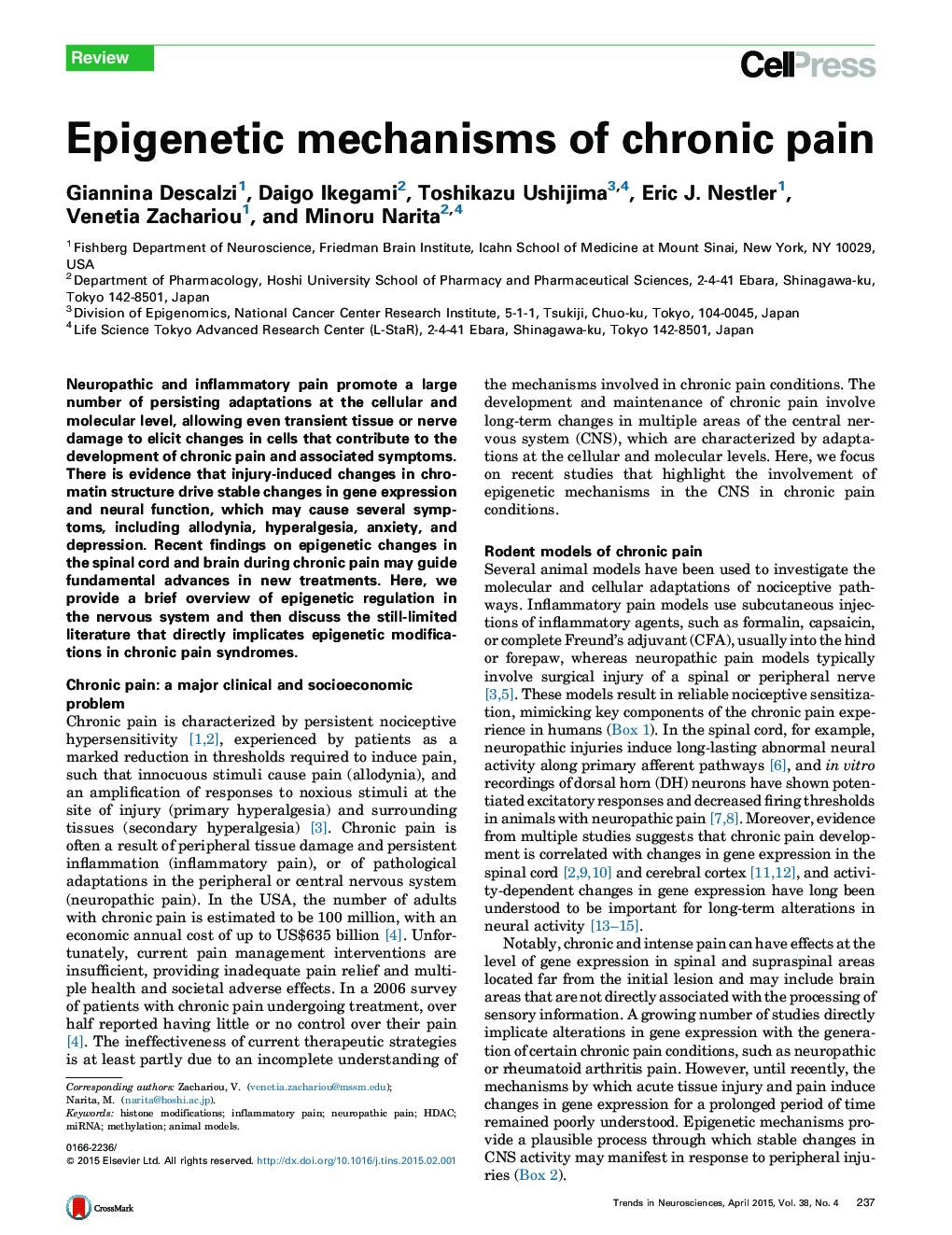| Article ID | Journal | Published Year | Pages | File Type |
|---|---|---|---|---|
| 4354162 | Trends in Neurosciences | 2015 | 10 Pages |
•Changes in gene expression in the CNS are associated with chronic pain.•Epigenetic mechanisms modulate long-term changes in gene expression.•Epigenetic activity correlates with behavioral manifestations of chronic pain.•Targeting epigenetic pathways alters behavioral and molecular markers of pain.•Focus on epigenetics may help reveal novel therapeutic targets for chronic pain.
Neuropathic and inflammatory pain promote a large number of persisting adaptations at the cellular and molecular level, allowing even transient tissue or nerve damage to elicit changes in cells that contribute to the development of chronic pain and associated symptoms. There is evidence that injury-induced changes in chromatin structure drive stable changes in gene expression and neural function, which may cause several symptoms, including allodynia, hyperalgesia, anxiety, and depression. Recent findings on epigenetic changes in the spinal cord and brain during chronic pain may guide fundamental advances in new treatments. Here, we provide a brief overview of epigenetic regulation in the nervous system and then discuss the still-limited literature that directly implicates epigenetic modifications in chronic pain syndromes.
